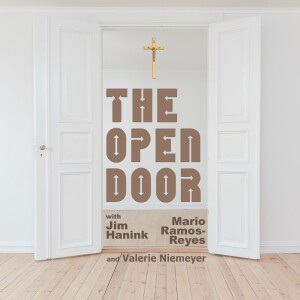
Episode 288: Donald Boland, David Cooney, John Médaille, Garrick Small, and Thomas Storck on Money, Markets and Morals (July 10, 2024)
 2024-07-11
2024-07-11
Download
Right click and do "save link as"
In this episode of The Open Door, panelists Jim Hanink, Valerie Niemeyer, and Christopher Zehnder discuss Catholic social thought and economics. That means taking a long, hard look at capitalism in practice and the dominance of corporations. We’ll explore the nature of usury and what’s at issue in a fair wage. We’ll consider the State as a political community and the family as the cornerstone of social justice. We’ll talk about personal responsibility as the foundation of a just social order. Our welcome guests are Thomas Storck, the editor of Money, Markets, and Morals (En Route Books, 2024) and its Australian contributors Dr. Donald Boland and Dr. Garrick Small, as well as the American distributist thinkers John Médaille and David Cooney. Among the questions we’ll address to this panel are the following. Please feel free to suggest your own!
view more
- Is Catholic social teaching a dimension of moral theology?
- How should we define capitalism? How can it become a threat to justice?
- What is the origin of the modern corporation? Is there any way to challenge its power?
- Can you compare and contrast for us, say, the Bank of America, on the one hand, and, on the other hand, a publicly owned bank or a credit union? What dangers does the former pose?
- Just what is usury? Why is it wrong? Can you give examples of usurious practices
- What is the distinction between a market wage and a fair wage? Where does a minimum wage guarantee fit in?
- What is the basis of ownership? Do we own our bodies and our lives?
- Should we think of the State as the political community of the highest degree?
- Does the current economic order recognize the family as the first unit of a just society? What would a “family politics” look like?
- In what ways might we practice personal responsibility in today’s profoundly complex economic order? Is personal responsibility compatible with stock ownership?
More Episodes
012345678910111213141516171819
Create your
podcast in
minutes
- Full-featured podcast site
- Unlimited storage and bandwidth
- Comprehensive podcast stats
- Distribute to Apple Podcasts, Spotify, and more
- Make money with your podcast
It is Free
- Privacy Policy
- Cookie Policy
- Terms of Use
- Consent Preferences
- Copyright © 2015-2024 Podbean.com





